The diversity and depth of physiotherapy research is reflected in the six PhD graduates from the University of Otago School of Physiotherapy, who graduated on 21 August. This is an impressive number of PhD graduates for a school with 15 full-time academic members of staff who can supervise at a doctoral level.
This group of outstanding graduates were all planning to join the graduation ceremony in Dunedin on Saturday, 21 August and celebrate this achievement together with whānau, friends and School of Physiotherapy staff. Unfortunately, these plans were cancelled due to the COVID-19 level 4 response.
School of Physiotherapy Dean, Professor Leigh Hale says: “Congratulations to all these graduates, it takes a lot of commitment and passion to achieve a PhD. Evidence-based research is vital to our profession, so I am grateful for their contribution so far and excited to see what their futures hold.
“It's also exciting to see their research reflecting how multi-faceted Physiotherapy is. There can be a perception that physiotherapy is only for athletes recovering from sports injuries, and while this is certainly one important part, these graduates demonstrate how far-reaching our profession is in how it contributes to people's health and wellbeing.”
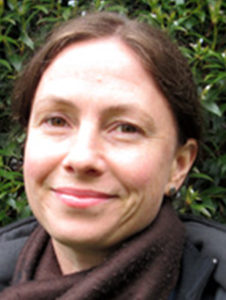
Dr Miranda Buhler
Dr Miranda Buhler
Thumb carpometacarpal osteoarthritis is a common, disabling condition, affecting many working and older-age people. It can have a profound impact on a person's health and wellbeing. Dr Buhler's research explores people's experiences of thumb osteoarthritis and investigates the effectiveness of splinting thumbs as a treatment.
Dr Buhler teaches at the School of Physiotherapy and in clinical practice. She works at the Dunedin Hospital. She is the recipient of a Health Research Council Health Services Career Development Award, with a focus on how co-design with patients and the public can improve access, equity, and quality of care for people with carpal tunnel syndrome.
“I think 'healing hands' are a powerful thing – it's not about massages all day everyday but permission to lay a hand on someone, to help them move well and understand their body, how their body is an expression of who they are, how they are feeling, and impacted by the work they do. It is holistic.”
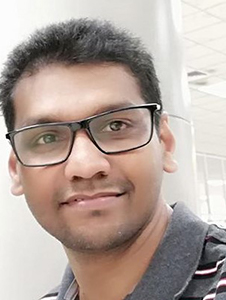
Dr Suranga Dassanyake
Dr Suranga Dassanayake
Dr Suranga Dassanayake moved from Sri Lanka with his young family to take up study with Otago. Prior to this, he was the first university lecturer in physiotherapy in a Sri Lankan University, with the Faculty of Medicine, University of Colombo. Dr Dassanayake's PhD studies focus on individuals diagnosed with true resistant hypertension, high blood pressure that is difficult to control by medication and high risk of obstructive sleep apnoea, a sleep disorder characterised by recurrent breath pauses due to partial or complete collapse of the upper airway during sleep.
“Physiotherapy is learning the engineering of the body and involves solving the mechanical disorders. A desire to explore the body's mechanics and become skilled as a clinician persuaded me to choose this profession.”
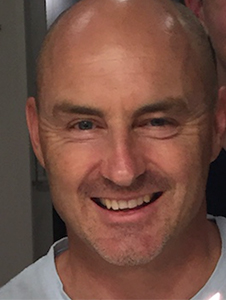
Dr Rob Moran
Dr Rob Moran
Dr Moran takes us 'Towards an understanding of injury epidemiology among CrossFit® participants' in his thesis. One of the earliest and longest standing areas of controversy surrounding this popular fitness programme has been the topic of injury, with media reports linking CrossFit to elevated injury risk. Dr Moran investigated this coverage further and found the arguments to be emotional and lacking in scientific basis. The desire for more considered, objective evidence on injury and CrossFit motivated him to undertake this thesis.
Dr Moran says a highlight of the time working on his thesis was, “The opportunity to draw connections between different fields – applying existing models of injury aetiology and prevention in the context of a new and rapidly growing sport.”
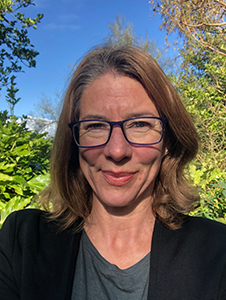
Dr Sarah Rhodes
Dr Sarah Rhodes
Dr Sarah Rhodes is a cardio-respiratory physiotherapist with an interest in both acute and community healthcare settings. Her PhD thesis is in supporting physical activity behaviour change in adults with obstructive sleep apnoea (OSA), a chronic sleep disorder characterised by recurrent partial or complete collapse of the upper airway during sleep.
Alongside her PhD studies, Dr Rhodes continued her work supporting physiotherapy students at Dunedin Hospital as a cardio-respiratory physiotherapist and is a leader in our response to COVID-19.
“From an acute and a long-term management perspective cardio-respiratory physiotherapists have a lot to contribute to our response to COVID-19. We are really well placed to manage some of the effects of long COVID that we are recognising now as being really common.”
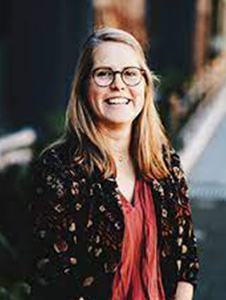
Dr Lara Vlietstra
Dr Lara Vlietstra
Dr Lara Vlietstra completed studies in physiotherapy, specialising in geriatric physical therapy, in the Netherlands. She joined the team at Otago to achieve her PhD. Lara's primary department for her studies has been the Dunedin School of Medicine, with support from the School of Physiotherapy. Her thesis is on 'Screening and treating pro-dromal sarcopenia in middle-aged adults'. Sarcopenia is the age-related loss of muscle mass and strength.
“I wanted to be a physiotherapist since I was nine, as I was obsessed with the human body, the muscles, the bones and how it all connected. And what I found even more fascinating, was how the human body is able to move!”
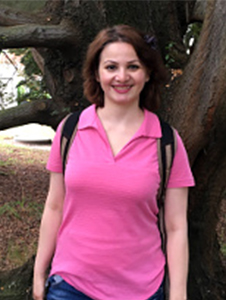
Dr Zohreh Tangrood
Dr Zohreh Tangrood
Dr Zohreh Tangrood has added to the understanding of the role of scapular dyskinesis in shoulder pain. Scapular dyskinesis is characterised as altered range of motion in your shoulder blade. This altered mobility has been linked to causing and continuing subacromial shoulder pain, a common cause of pain in patients with shoulder complaints. She is from Iran, completing an undergraduate and Master's in Physiotherapy from Tehran University of Medical Science. After eight years of clinical experience, she came in New Zealand in 2016 to start her PhD.
“I am a people person. I really enjoy helping patients and receiving positive feedback from them.”
